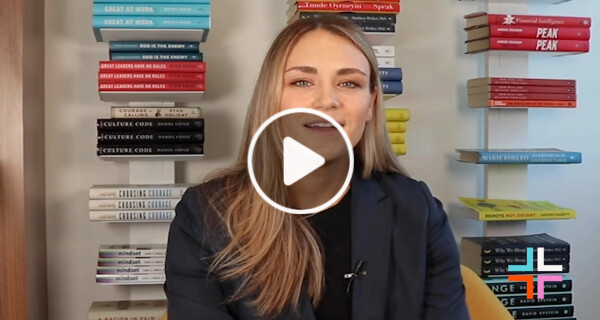Edmonton Section B Benefit Lawyers
What goes through a person’s mind in the first few moments after a motor vehicle accident? For some people, the shock is so intense they ask themselves, “What just happened?” Others might look around and ask “Was anyone hurt?” And if you sustained a serious injury in a motor vehicle collision, your mind might be so focussed on the intense pain you’re feeling, you simply can’t think of anything else.
Only after the initial shock of what has happened wears off can a person’s mind turn to other important matters, including the process and prognosis for recovery, and the costs they will incur during rehabilitation. But trying to understand insurance policies and procedures can be confusing at the best of times; when your injuries have left you feeling physically, mentally and emotionally exhausted, wading through insurance forms can overwhelm you.
Fortunately, Litco Law personal injury advocates are ready to work with you to make sense of insurance matters and access the benefits and compensation you deserve. The Litco Law team, including our Edmonton Section B BenefitsLawyers, can help you determine what funds you’re entitled to. Even if you were at fault in the motor vehicle accident, were uninsured, or were a pedestrian or cyclist victim of a hit-and-run, you may be eligible to receive Section B Benefits for medical expenses, loss of income and other costs associated with the accident.
Only after the initial shock of what has happened wears off can a person’s mind turn to other important matters, including the process and prognosis for recovery, and the costs they will incur during rehabilitation. But trying to understand insurance policies and procedures can be confusing at the best of times; when your injuries have left you feeling physically, mentally and emotionally exhausted, wading through insurance forms can overwhelm you.
Fortunately, Litco Law personal injury advocates are ready to work with you to make sense of insurance matters and access the benefits and compensation you deserve. The Litco Law team, including our Edmonton Section B BenefitsLawyers, can help you determine what funds you’re entitled to. Even if you were at fault in the motor vehicle accident, were uninsured, or were a pedestrian or cyclist victim of a hit-and-run, you may be eligible to receive Section B Benefits for medical expenses, loss of income and other costs associated with the accident.

WATCH THE VIDEO
Learn more about what to expect from our free consultation or speak with our legal team to book a free consultation today.
BOOK A FREE CONSULTWhat Are Section B Benefits?
By law, every motor vehicle insurance policy issued in Alberta must contain a Section B clause that provides a minimum amount of “no-fault” benefits coverage. This means even if you caused or contributed to a motor vehicle accident, you are still eligible to receive Section B benefits. The Insurance Act contains the Automobile Accident Insurance Regulation(Alberta Regulation 352/1972) that outlines these contractual benefits, which include medical expenses (subject to some limits of popular treatments), weekly disability income replacement supplements, and in the event of a fatal injury, death and funeral benefits and funds for grief counselling.
If you own a motor vehicle insurance policy and were injured in a motor vehicle accident, typically your own insurance provider will be responsible for paying out these benefits. If you do not have one of these policies, but were travelling in a motor vehicle, usually that driver’s insurer will be responsible. An injured non-motorist (pedestrian or cyclist) who does not have their own policy can normally access these benefits through the policy of (one of) the vehicle(s) involved. A passenger on an Edmonton City Bus involved in an accident can make a claim through the City of Edmonton. If the accident was a hit-and-run or the driver involved was uninsured and none of the injured people have a policy, Section B benefits may be payable through the Motor Vehicle Accident Claims (MVAC) Program.
Section B Benefits are only available for up to two years after the date of the accident and if you hold other health insurance policies that provide comparable benefits, there is a sharing of coverage between those benefits and Section B benefits.
What Kinds of Benefits Does The Section B Schedule Provide?
Medical Expenses
Section B benefits provide up to $50,000 per insured person for all reasonable medical expenses incurred within two years of the date of the accident for treatment of injuries associated with that accident. These include: medical, surgical, chiropractic, dental, hospital, psychological, physical therapy, occupational therapy, massage therapy, acupuncture, professional nursing and ambulance services and any medically necessary equipment, home modifications or vehicle modifications deemed essential for the treatment or rehabilitation of the injured person.
In the case of common minor injuries such as strains, sprains and whiplash associated disorder (WAD), an injured person can seek treatment under the Diagnostic and Treatment Protocols Regulation (Alberta Regulation 116/2014). These protocols classify these injuries, provide criteria to establish degree of severity, and outline courses of treatment.
Disability Benefits
If injuries resulting from an accident prevent a person from working, they may be entitled to disability benefits worth up to $600 a week or 80% of their weekly pre-tax earnings, whichever is less. If there are other disability benefits, the other disability provider and Section B share the responsibility to pay disability benefits.
In order to qualify for these benefits, a person must be:
- injured in an accident involving a motor vehicle;
- able to identify a Section B insurer to claim against;
- be actively employed at the time of the accident or be at least 18 years old and have been employed for at least six of the last 12 months (months worked do not need to be consecutive);
- disabled to the extent that they cannot perform ALL of the duties of their job within 60 days of the accident; and
- be available to be evaluated and certified as disabled by a Section B insurer-appointed medical practitioner who is duly qualified.
To claim these benefits a person must be wholly and continuously disabled. Since these benefits do not apply to a claimant’s first seven days off work and they will not cover all lost employment income in and of themselves, an accident victim could make a subsequent tort claim for this portion of lost earnings.
Death, Funeral and Grief Counselling Benefits
In the event of a fatal accident, a basic death benefit is payable to a household based on the deceased person’s age and status within the household. Deceased heads of household or spouses/interdependent partners of heads of households aged 10 or older provide a $10,000 death benefit. Deceased dependent relatives aged up to four years old or over the age of 70 provide $1,000. Deceased dependent relatives aged five to nine years old or aged 18 to 69 provide $2,000. Deceased dependent relatives aged 10 to 17 provide $3,000.
Funeral service expenses up to the amount of $6150 and grief counselling expenses up to the amount of $500 in respect of the death of any one person in a household are also payable.
Why Might I Need Help Accessing Section B Benefits?
In an ideal world everyone would receive the benefits they are entitled to without any hassle or delay.
Unfortunately, not only are Section B policies and forms often confusing, but insurers have no real incentive to ensure applicants fully understand everything that may be due to them. Moreover, if insurers delay or deny these benefits, some applicants may not bother to pursue an appeal.
By contacting an experienced, knowledgeable and skilled Edmonton Section B Benefits lawyer, you can get the help you need applying for and receiving these benefits. Litco Law’s trusted team of personal injury advocates understands the ins and outs of this complex system. We are available to explain how to open a Section B claim, offer advice if and when you are asked to visit an insurer-selected medical practitioner, advance your claim if there are unacceptable delays and support your appeal if you’ve been denied benefits you should be receiving.
Although there are deadlines in place to ensure you notify the Section B insurer in a timely manner (within 30 days for the accident), and complete the necessary forms for medical expenses and/or disability benefits (within 90 days), a Litco Law Edmonton Section B Benefits Lawyer may still be able to assist you in accessing these benefits if these deadlines have been missed.
Why Choose To Work With Us?
For more than 45 years Litco Law has been helping accident victims claim the benefits and compensation they deserve for their injuries. Known for our professionalism, client-centred approach, and track record of results, our firm has been named one of Canada’s Top Ten Boutique Personal Injury Firms by Canadian Lawyer Magazine.
As personal injury lawyers, we are passionate about helping people who have experienced tragedy and need a staunch advocate to support them on their road to recovery. Facing powerful, well-financed insurance companies on your quest to receive the benefits you are due can be terrifying if you feel alone. You may feel pressured to accept an inadequate settlement or believe that fighting a Section B Benefits denial is pointless. With Litco Law Edmonton Section B Benefits lawyers on your side and by your side, you can be confident that we’ll champion your best interests. We’re prepared to keep fighting all the way to court to help you get what you deserve. And by working on contingency, we will only receive payment if we’re able to recover money for you.
We also understand that achieving a financial settlement or award is only one part of the healing process. At Litco Law, our team will do our utmost to assist you as you heal physically, emotionally and financially. Many of our past clients have told us how much they appreciate the way our firm treats them as though they were family. By showing we care about you as an individual and not just a number, you’ll see that we are in this field for the right reasons.
Looking For A Section B Benefits Lawyer in Edmonton Contact Us.
We service the Edmonton and surrounding area, including the counties of Parkland, Leduc, Strathcona, Sturgeon. When you need a Section B Benefits Lawyer in Edmonton, think Litco Law Personal Injury Lawyers.
Have questions about the Alberta government’s proposed shift to a no-fault (Care-First) system? Wondering how it will impact injured Albertans?
Learn more here.
Learn more here.
Personal Injury Claims Recent Posts
Have more legal questions?
Contact our legal team today for help by booking a free consultation.
Call (403) 273-8580orsubmit online formInTheKnow
Subscribe to get insider info and all the latest Litco Law news first
COPYRIGHT © 2025 "LITCO LAW" IS A TRADEMARK AND TRADE NAME OF LITWINIUK LLP | Legal & Privacy Policy









